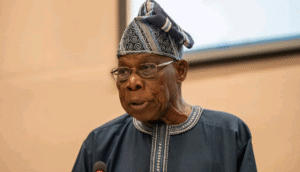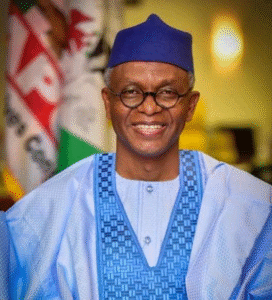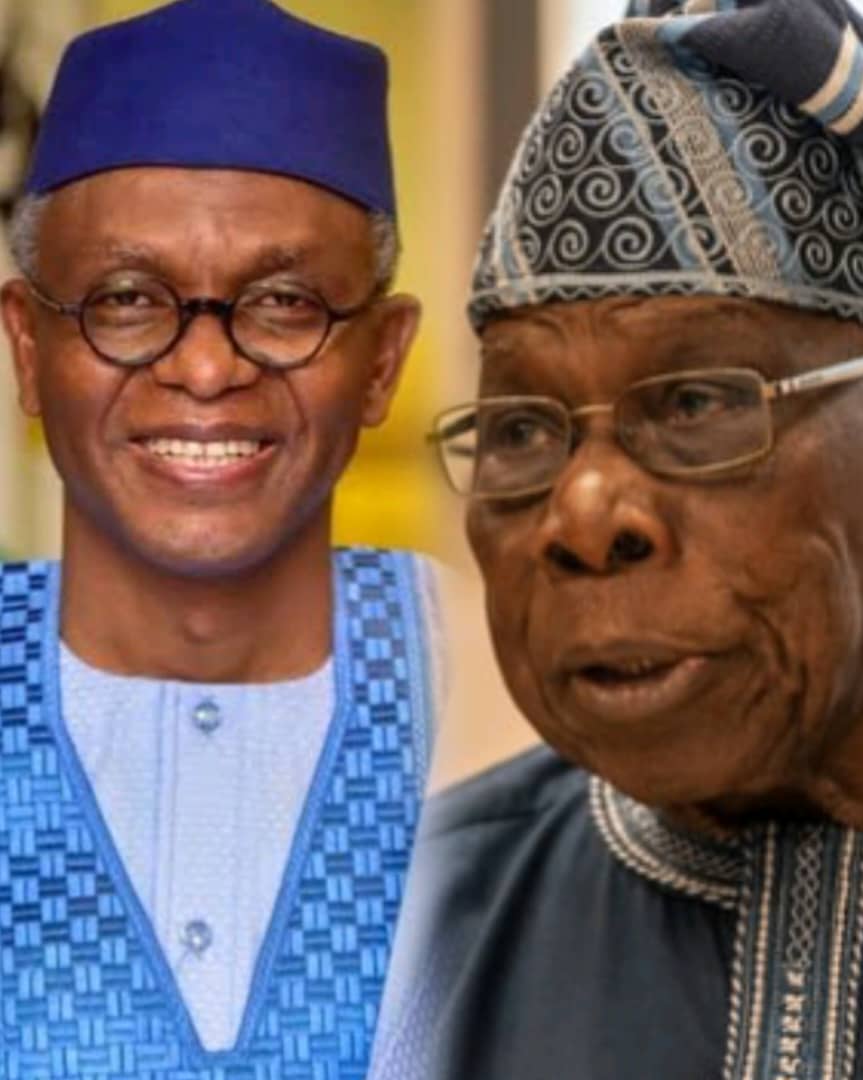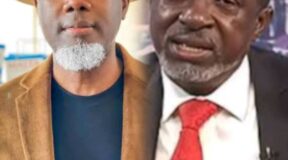Former President Olusegun Obasanjo has revealed that he once turned down a proposal to support Nasir El-Rufai, former Kaduna State governor, as his successor at the end of his presidency in 2007.

Speaking during the Ajibosin Platform Annual Symposium in Abeokuta on Friday, Obasanjo said he rejected the idea because he felt El-Rufai “was not mature enough” at the time to lead the country.
El-Rufai had served under Obasanjo’s administration between 1999 and 2007, first as the Director-General of the Bureau of Public Enterprises and later as Minister of the Federal Capital Territory (FCT).
During the event, former Minister of Aviation Osita Chidoka, who delivered the keynote address, recounted how El-Rufai introduced him to Obasanjo when he was 34, leading to his eventual appointment as Corps Marshal of the Federal Road Safety Corps.

Interrupting Chidoka’s speech, Obasanjo said jokingly, “He didn’t mention that he was pushing that his friend, El-Rufai, should be brought in as my successor.” Turning to Chidoka, he asked, “No be so?”; to which Chidoka nodded in agreement.
Obasanjo explained that while Chidoka had lobbied for El-Rufai, he decided against it.
“I did not yield to the pressure. I told him El-Rufai needed to mature,” Obasanjo said. “Many years later, when he saw El-Rufai’s performances, he came back and said, ‘You were absolutely correct.’”
The former president praised both Chidoka and El-Rufai, describing them as talented individuals who contributed greatly to his administration.
On leadership, Obasanjo stressed the need for training and character-building, saying,
“It’s only in politics that there’s no training for leadership. Even among armed robbers, there’s apprenticeship. But in politics, there’s none, that’s not good enough.”
In his keynote address, Chidoka argued that Nigeria’s challenges are rooted not in a lack of ideas, but in weak systems and institutions.
“Leadership must be measured by results, not rhetoric,” he said. “Our problem has never been a shortage of ideas, it’s the failure to build systems strong enough to outlive their authors.”






